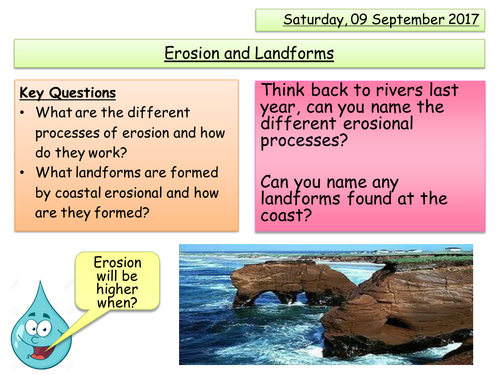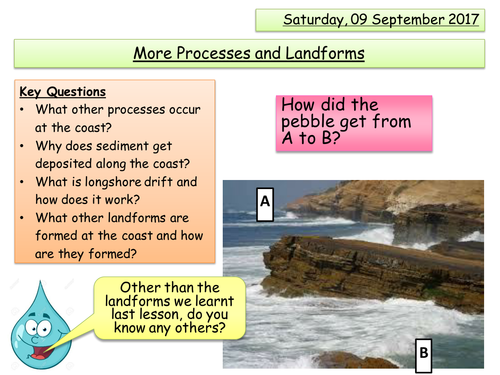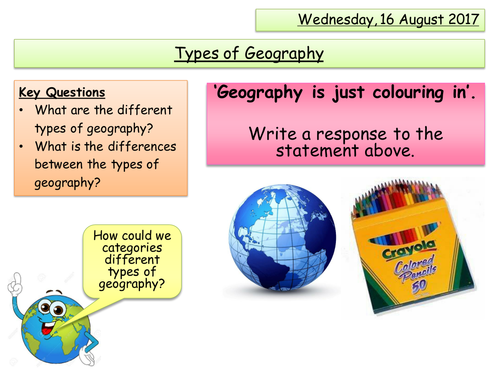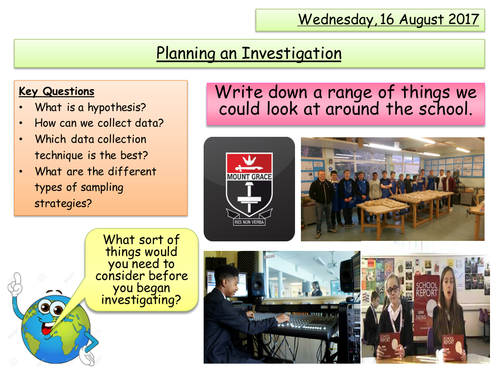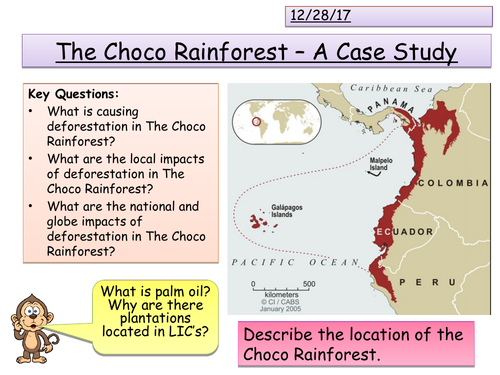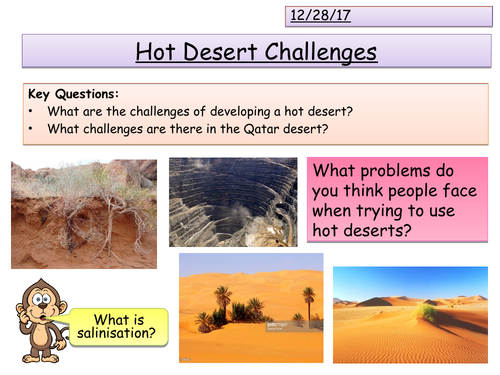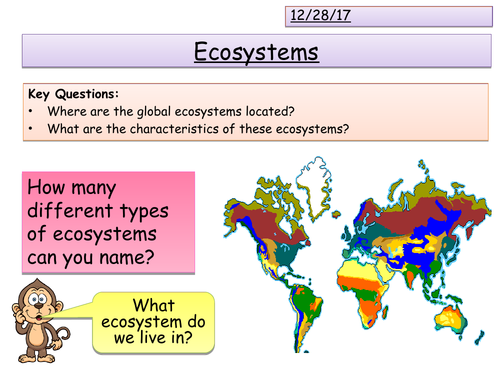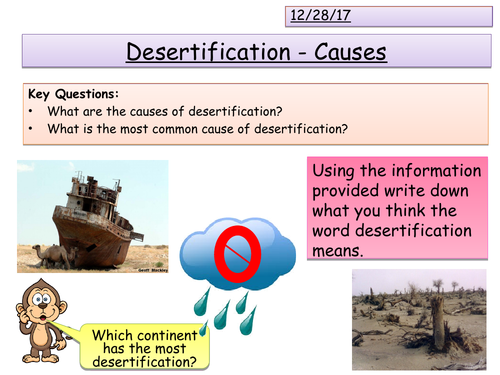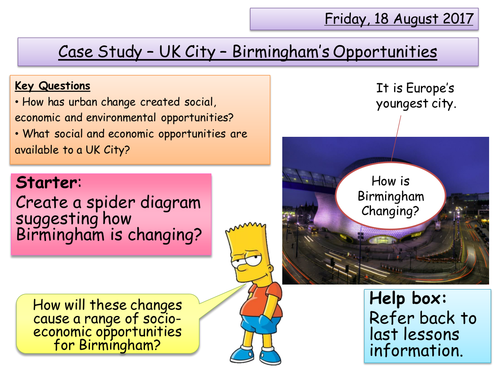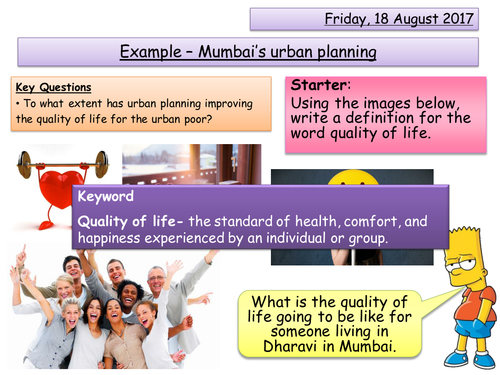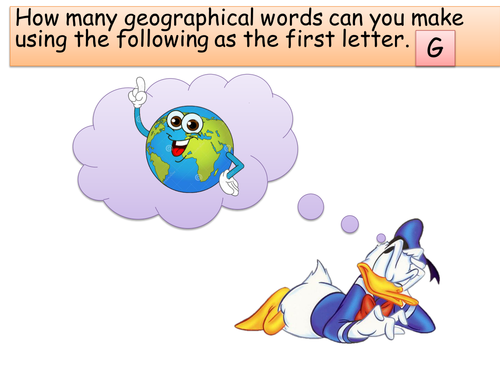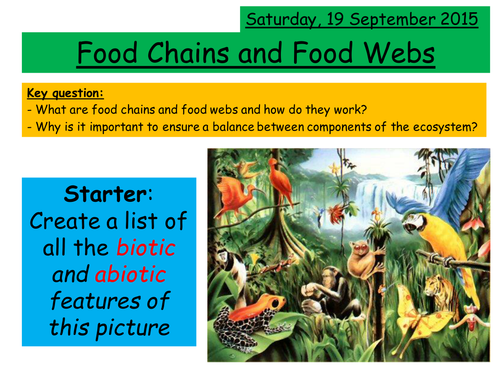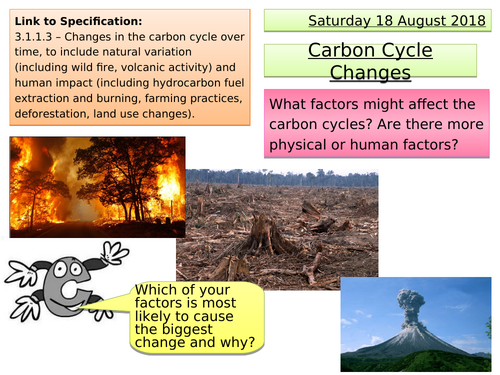
156Uploads
241k+Views
299k+Downloads
All resources

A Question A Day - AQA Geography
This contains a question a day, starting on the first day back after February half term, up until the 3rd paper. It covers all topics with the exception of the Pre-Release.
The optional topics covered are:
Hot Deserts
Coastal Landscapes
River Landscapes
Energy
Each topic is covered equally to ensure that students are well prepared for the real exam, along with a range of questions to ensure students are practicing a variety of skills and marks.
Each question is colour coded to represent a different topic, which allows students to know what unit they are revising.

AQA Geography Paper 1 Revision Booklet
This is a comprehensive revision booklet based around AQA Geography Paper 1 exam.
The idea of this booklet is for students to complete a range of activities in a bit to aid their revision, before their exam. I originally created this booklet for PP students, however this this is more than suitable for anyone to complete. Please note all case studies and examples can be edited to match the ones you use.
Inside the booklet you will see activities for the following units:
The challenge of natural hazards
The living world (Rainforests and Hot deserts)
Physical Lanscapes of the UK (Coasts and Rivers)

AQA Geography Paper 2 Revision Booklet
This is a comprehensive revision booklet based around the AQA Geography Paper 2 exam.
The idea of this booklet is for students to complete a range of activities in a bit to aid their revision, before their exam. I originally created this booklet for PP students, however this this is more than suitable for anyone to complete. Please note all case studies and examples can be edited to match the ones you use.
Inside the booklet you will see activities for the following units:
Ubran Issues and Challenges
The Changing Economic World
The Challenge of Resource Management (Resources and Energy)

Contemporary Urban Environments - AQA A Level
This resources contains all lessons for the AQA A Level unit of Contemporary Urban Environments. All resources are provided except for a geofile on air pollution in Beijing.
Pages referenced are for the Human Geography Book created by Oxford University Press.

Glaciation and Rivers
This resource contains all the materials to teach a full unit titled Glaciation and Rivers. This is designed for year 7’s however could easily be edited to cater for slightly older year groups.
This resource contains all powerpoints, resources, homeworks and assessment materials. Lesson titles are as follows:
Lesson 1 - Glaciation
Lesson 2 - Glacial Processes
Lesson 3 - Erosional Landforms Part 1
Lesson 4 - Erosional Landforms Part 2
Lesson 5 - Transportational and Depositional Landforms
Lesson 6 - Using Glacial Landforms
Lesson 7 - Mid Unit Assessment
Lesson 8 - The Water Cycle
Lesson 9 - Drainage Basin
Lesson 10 - Fluvial Processes
Lesson 11 - Upper Course Landforms
Lesson 12 - Middle Course Landforms
Lesson 13 - Causes of Flooding
Lesson 14 - River Management
Lesson 15 - End of Unit Assessment
Plus 2 additional pieces of material:
Mid Unit Feedback
End of Unit Feedback

Asia End of Unit Assessment and Feedback
This is an analysis and evaluation style assessment for my unit of work titled Asia. This lesson comes with the assessment, mark scheme, marking grid and action points for students to complete as part of the feedback.

Erosional Landforms - Coasts
This lessons aims to allow students to gain an understanding of the different erosional processes that occur along the coast, followed by how these create a range of coastal landforms.
By the end of the lesson students will be able to answer the following key questions:
- What are the different processes of erosion and how do they work?
- What landforms are formed by coastal erosional and how are they formed?

Transportation and Depositional Landforms
This lesson aims to allows students to gain an understanding of longshore drift, deposition, and depositional landforms.
By the end of the lesson students will be able to answer the following questions:
- What other processes occur at the coast?
- Why does sediment get deposited along the coast?
- What is longshore drift and how does it work?
- What other landforms are formed at the coast and how are they formed?

Atlas Challenge
This lesson aims to get students use to using an atlas and being able to identify countries, towns, cities and oceans using the index of an Atlas. In addition to this it teaches students how to write an accurate geographical description. By the end of the lesson students will be able to answer the following key questions:
How do we use an atlas to find places?
How do we write a geographical description?

Types of Geography
This lesson aims to show students the 3 different types of geography: physical, human and environmental. Students will be able to answer the following key questions by the end of the lesson:
What are the different types of geography?
What is the differences between the types of geography?
NOTE - I do not own the rights to the video.

Planning an Investigation
This lesson aims to get students involved in the planning of their own investigation. This is aimed at year 7, completing their very first piece of fieldwork. The fieldwork is based around locating the most unsafe location within their school. It gets students examining different data collection methods, and the sampling strategies they will use. Although this lesson mentions a school, it is easily adaptable to mention your own individual school. By the end of the lesson students will be able to answer the following key questions:
What is a hypothesis?
How can we collect data?
Which data collection technique is the best?
What are the different types of sampling strategies?

A Tropical Rainforest - The Choco Rainforest
This lesson is based around the new AQA GCSE specification. This is a lesson in the unit titled Living World. The main aim of this lesson is to cover the following element of the specification:
A case study of a tropical rainforest to illustrate:
- Causes of deforestation – subsistence and commercial farming, logging, road building, mineral extraction, energy development, settlement, population growth
- Impacts of deforestation – economic development, soil erosion, contribution to climate change.
NOTE - When it refers to page numbers please refer to the information provided.

Challenges of Deserts - Qatar
This lesson is based around the new AQA GCSE specification. This is a lesson in the unit titled Living World. The main aim of this lesson is to cover the following element of the specification:
A case study of a hot desert to illustrate:
- Challenges of developing hot desert environments: extreme temperatures, water supply, inaccessibility.
NOTE - When it refers to page numbers please refer to the information provided.

Global Ecosystems
This lesson is based around the new AQA GCSE specification. This is a lesson in the unit titled Living World. The main aim of this lesson is to cover the following element of the specification:
- An overview of the distribution and characteristics of large scale natural global ecosystems.
NOTE - When it refers to page numbers please refer to the information provided.

Causes of Desertification
This lesson is based around the new AQA GCSE specification. This is a lesson in the unit titled Living World. The main aim of this lesson is to cover the following element of the specification:
- Causes of desertification – climate change, population growth, removal of fuel wood, overgrazing, over-cultivation and soil erosion.
NOTE - When it refers to page numbers please refer to the information provided.

Major UK City - Birmingham Opportunities
This lesson is the first part of the major UK city you must cover in the new AQA GCSE specification. This lesson aims to cover the following element from the specification:
How urban change has created opportunities:
• social and economic: cultural mix, recreation and
entertainment, employment, integrated transport systems
• environmental: urban greening
NOTE = When it refers to page numbers, please use the factfile attached

Urban Planning - Mumbai
This lesson is based around the new AQA GCSE Specification. This is a lesson in the unit titled Urban Issues and Challenges. The main aim of this lesson is cover the following element of the specification:
An example of how urban planning is improving the quality of life for the urban poor.
NOTE = This lesson follows on nicely from the major city lessons which focus on Mumbai.

Natural Causes of Climate Change
This lesson aims to get students to think about the 3 main theories behind the natural causes of climate change; Orbital Theory, Solar Output Theory and Eruption Theory.

Food Chains and Food Webs
This lesson aims to get students to understand what a food chain and food web are, in addition to gaining an understanding of why it is important to understand the balance in an ecosystem.

Carbon Cycle Changes - AQA A Level
This lesson is based around the new AQA A Level specification. This is a lesson in the unit titled Water and Carbon Cycles. The main aim of this lesson is to cover the following element of the specification:
3.1.1.3 – Changes in the carbon cycle over time, to include natural variation (including wild fire, volcanic activity) and human impact (including hydrocarbon fuel extraction and burning, farming practices, deforestation, land use changes).
Any pages referenced are from the Oxford physical textbook.
Please note I do not own the rights to any of the images used in this powerpoint.







